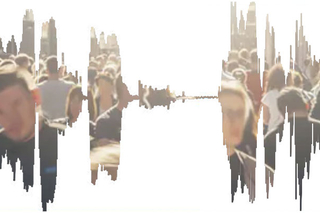The study of Linguistics leads to an understanding of sounds, grammar and meaning across languages and cultures and that exposes students to descriptive, experimental, and historical approaches to the study of language.
Why study linguistics?
-
Language is Everywhere: The Linguistics of Biology, Culture, and Society across Time and Space
Explore linguistics through the 2020-2021 Bass Model Research Collection online exhibit.
Who should take linguistics classes?
Anyone who is interested in questions like these:
- What is the role of language in the human mind? What kind of mental representations underlie the knowledge of our native language?
- What kinds of abstract, empirically testable representations allow us to model our knowledge of language, as part of cognitive science?
- How can we study human language from a humanistic angle?
- How do languages differ across the world? What are the similarities and differences attested across languages?
- How do languages change over time? Why do they change?
- What is the origin and evolution of human language?
- How can we apply experimental methodology to the study of language, in particular in the area of phonetics and semantics?
- In what ways is language like a computational system? how can we use the formal tools of mathematics and computer science to characterize the patterns and restrictions found across the world’s languages and the process by which language is acquired and used?
- How can linguistics be applied to language preservation and the documentation of endangered languages?
The class of 2013 majors explain why they were drawn to Linguistics and what they like about our department and major.
Classes for Non-Majors
The Department of Linguistics offers several courses open to students with no previous training in the field. These courses provide a general introduction to the subject matter and technical methods of linguistics, both for students who do not plan to major in Linguistics and for prospective majors.
Students with no previous background in linguistics are encouraged to approach the field by taking a freshman seminar or a 100-level course. Depending on your interests, these are good first courses:
Fall:
- LING 110: Language: Introduction to Linguistics [a general overview of the field]
- LING 107: Linguistic Endangerment and Revitalization [languages of the world, threats to linguistic diversity and responses]
- LING 217: Language and Mind [language and cognition]
- LING 167: Meaning: What, How, Why [logic and semantics]
Spring:
- LING 109: History of the English Language
- LING 112: Historical Linguistics [introduction to linguistics and how languages change]
- LING 116: Cognitive Science of Language [intro to linguistics from the perspective of cog sci]
- LING 119: How to Construct a Language [Conlangs and how to make them]
- LING 211: Grammatical Diversity in US English [dialects and differences in American Englishes]
What career opportunities will I have with a Linguistics degree?
Our classes develop valuable skills that are applicable to many jobs, including problem-solving skills, attention to detail, argumentation, and clarity of expression. Some jobs that more specifically use skills from a linguistics degree are the following:
- A knowledge of how language works is very useful for work in the Law
- Work in tech
- Work in education
- Teach at the university level
- Work as a translator or interpreter
- Teach English as a Second Language (ESL)
- Teach a language other than English
- Work on language documentation or conduct fieldwork
- Work in the publishing industry (e.g. as an editor, technical writer or journalist)
- Work for a testing agency
- Work with dictionaries (lexicography)
- Become a consultant on language in professions such as Law or Medicine
- Work for an advertising company
- Work for the government
- Become an actor or train actors
- Work in speech pathology

